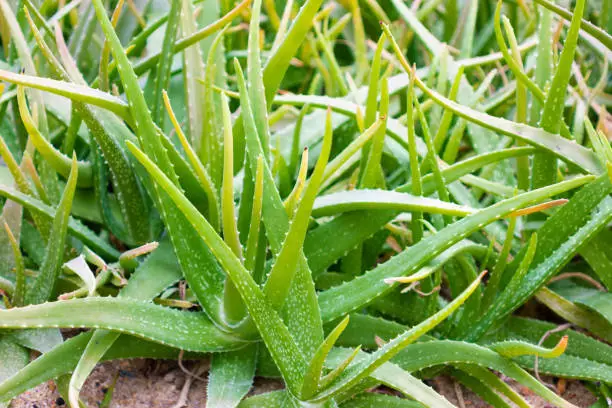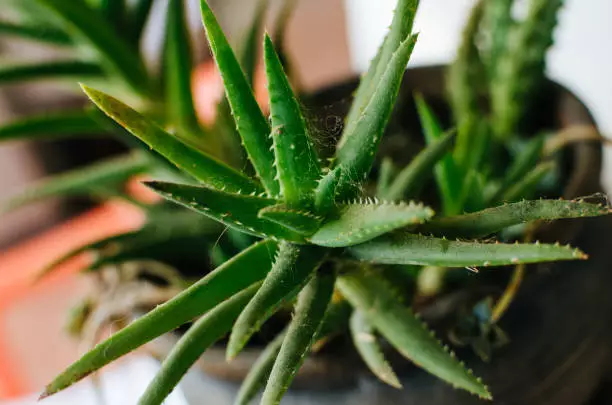It is becoming increasingly popular to grow your own vegetables at home. Many people are turning to homegrown produce as a way to ensure they are eating fresh, organic, and healthy food. However, some are wondering if it is possible to only eat homegrown vegetables and still meet their nutritional needs.
While it is possible to grow a variety of vegetables in a home garden, it may not be feasible to rely solely on homegrown produce for all your nutritional needs. A study from the dietary and nutritional survey of British adults found that low fruit and vegetable intake was associated with various health issues. Therefore, it is important to consume a variety of fruits and vegetables to maintain a healthy diet.
That being said, incorporating homegrown vegetables into your diet can be a great way to supplement your nutritional intake. Eating homegrown produce has been associated with higher intake among parents and their preschool-aged children. Additionally, homegrown vegetables can be a cost-effective and sustainable way to add fresh produce to your diet.
Understanding Homegrown Vegetables
Homegrown vegetables refer to vegetables that are grown in one’s own garden or yard. There are many benefits to growing your own vegetables, including having access to fresh produce, knowing exactly what goes into your food, and reducing your carbon footprint by avoiding transportation emissions.
Some popular homegrown vegetables include tomatoes, peppers, spinach, beans, potatoes, corn, broccoli, carrots, eggplant, radishes, leaf lettuce, and sweet potatoes. However, it is important to note that not all vegetables are suitable for home gardening, and some may require more space, sunlight, or specific growing conditions than others.
One advantage of homegrown vegetables is that they are often more flavorful and nutritious than store-bought produce, as they are allowed to ripen fully on the vine before being harvested. Additionally, homegrown vegetables may be less likely to contain harmful chemicals or pesticides, as gardeners can control the use of these substances.
However, there are also some challenges associated with growing your own vegetables. For example, pests and diseases can be a major issue, and gardeners may need to take proactive measures to prevent or treat these problems. Additionally, some vegetables may require more maintenance or specialized equipment than others, such as trellises or cages for climbing plants like tomatoes or beans.
Overall, while it is certainly possible to only eat homegrown vegetables, it may require a significant investment of time, effort, and resources. However, for those who are passionate about gardening and sustainable living, growing your own vegetables can be a rewarding and fulfilling experience.
The Nutritional Value of Homegrown Vegetables
Homegrown vegetables are a great source of essential nutrients, vitamins, and minerals that are necessary for maintaining good health. Here are some of the key nutritional benefits of eating homegrown vegetables:
- Nutrients: Homegrown vegetables are rich in essential nutrients that are necessary for good health. These include carbohydrates, proteins, fats, and fiber.
- Water: Vegetables are also a good source of water, which is essential for maintaining proper hydration levels in the body.
- Vitamins: Homegrown vegetables are packed with vitamins, including vitamin A, vitamin B-12, vitamin C, vitamin D, vitamin E, and vitamin K.
- Minerals: Vegetables are also a good source of minerals, including calcium, iron, zinc, potassium, and magnesium.
- Antioxidants: Homegrown vegetables are rich in antioxidants, which help to protect the body against damage from free radicals.
- Phytochemicals: Vegetables contain phytochemicals, which are natural compounds that have been shown to have a range of health benefits.
- Fiber: Homegrown vegetables are an excellent source of fiber, which is essential for maintaining good digestive health.
- Fat: Vegetables are low in fat, making them an ideal food for people who are looking to maintain a healthy weight.
Overall, eating homegrown vegetables is an excellent way to ensure that you are getting all of the essential nutrients, vitamins, and minerals that your body needs to stay healthy. By incorporating a variety of different vegetables into your diet, you can enjoy a range of health benefits and support your overall well-being.
Growing Your Own Vegetable Garden
Growing your own vegetable garden is a great way to ensure a steady supply of fresh and healthy produce. With the right tools, knowledge, and a little bit of patience, you can grow a variety of vegetables right in your own backyard.
One of the most important factors in growing a successful vegetable garden is sunlight. Vegetables need at least six hours of direct sunlight per day to grow properly. Therefore, it is important to choose a location in your yard that receives plenty of sunlight.
Another important aspect of growing a vegetable garden is proper support. Some vegetables, such as tomatoes and cucumbers, need support to grow properly. A trellis or cage can provide the necessary support for these plants.
When it comes to gardening, it is important to choose the right vegetables for your climate and soil type. Some vegetables, such as tomatoes and peppers, prefer warmer temperatures, while others, such as lettuce and spinach, prefer cooler temperatures.
In addition to climate and soil type, it is important to choose the right time to plant your vegetables. Some vegetables, such as peas and lettuce, can be planted in early spring, while others, such as tomatoes and peppers, should be planted in late spring or early summer.
Overall, growing your own vegetable garden can be a rewarding and healthy experience. With the right tools and knowledge, you can enjoy fresh and healthy produce right from your own backyard.
Benefits of Eating Homegrown Vegetables
Eating homegrown vegetables has numerous benefits for your health. Vegetables are an essential part of a healthy diet, and consuming them regularly can help prevent a range of health issues, including heart disease, cancer, and type 2 diabetes.
Health Benefits
Homegrown vegetables are often fresher and more nutritious than store-bought produce. They are free of pesticides and other harmful chemicals that can be present in conventionally grown vegetables. They are also rich in vitamins, minerals, and antioxidants that are essential for good health.
Cancer Prevention
Eating a diet rich in vegetables has been linked to a reduced risk of cancer. Vegetables contain compounds that can help protect against cancer, such as carotenoids, flavonoids, and glucosinolates. Some studies have found that consuming cruciferous vegetables, such as broccoli, cauliflower, and kale, may be particularly beneficial for preventing certain types of cancer.
Heart Health
Eating a diet rich in vegetables can also help improve heart health. Vegetables are low in calories and high in fiber, which can help promote weight loss and reduce the risk of obesity. They are also rich in potassium, which can help lower blood pressure and reduce the risk of cardiovascular disease.
Diabetes Prevention
Consuming a diet rich in vegetables can also help prevent type 2 diabetes. Vegetables are low in calories and high in fiber, which can help regulate blood sugar levels and improve insulin sensitivity. Eating a diet rich in vegetables has been linked to a reduced risk of type 2 diabetes.
Vegan Diet
Eating a diet rich in vegetables is also a key component of a vegan diet. A vegan diet is a plant-based diet that excludes all animal products, including meat, dairy, and eggs. Consuming a diet rich in vegetables can help ensure that you are getting all the nutrients you need on a vegan diet.
Weight Loss
Eating a diet rich in vegetables can also help promote weight loss. Vegetables are low in calories and high in fiber, which can help keep you feeling full and satisfied. Consuming a diet rich in vegetables has been linked to a reduced risk of obesity and weight gain.
Bloating
Eating a diet rich in vegetables can also help reduce bloating. Vegetables are low in sodium and high in potassium, which can help regulate fluid balance in the body and reduce bloating. Consuming a diet rich in vegetables can help promote digestive health and reduce bloating.
Challenges of a Homegrown Vegetable Diet
While eating homegrown vegetables can be a healthy and sustainable choice, there are some challenges to consider. Here are some of the main challenges:
Limited Nutrient Diversity
One of the main challenges of a homegrown vegetable diet is the potential for limited nutrient diversity. Depending on the types of vegetables grown, it may be difficult to get a wide range of essential nutrients, such as protein, healthy fats, and certain vitamins and minerals.
Caloric Intake
Another potential challenge of a homegrown vegetable diet is caloric intake. Vegetables are generally low in calories, which can make it difficult to consume enough calories to meet daily needs. This can be especially challenging for people who are very active or have high calorie needs.
Protein Intake
Protein can also be a challenge on a homegrown vegetable diet. While some vegetables, such as legumes, are good sources of protein, it can be difficult to consume enough protein to meet daily needs without relying on other sources of protein, such as meat or dairy.
Anemia
Iron deficiency anemia can also be a concern on a homegrown vegetable diet. While some vegetables, such as spinach and kale, are good sources of iron, the iron in plant-based foods is not as easily absorbed by the body as the iron in meat. This means that people who rely heavily on plant-based sources of iron may be at risk for iron deficiency anemia.
Body Fat
Finally, body fat can be a challenge on a homegrown vegetable diet. While vegetables are generally low in fat, some people may find it difficult to maintain a healthy body fat percentage without including other sources of fat in their diet, such as nuts, seeds, and healthy oils.
Overall, while a homegrown vegetable diet can be a healthy and sustainable choice, it is important to be aware of the potential challenges and to make sure that you are getting all of the essential nutrients that your body needs.
Supplementing Your Homegrown Vegetable Diet
While it is possible to survive on a diet consisting solely of homegrown vegetables, it may not be the most nutritionally balanced option. To ensure that you are getting all the necessary nutrients, it is important to supplement your homegrown vegetable diet with other food groups.
Here are some options for supplementing your homegrown vegetable diet:
- Fruits: Incorporating fruits into your diet can provide a variety of vitamins and minerals that may not be present in your homegrown vegetables. Consider adding fruits such as strawberries or avocado to your meals.
- Dairy products: Dairy products such as milk and cheese can provide calcium and protein to your diet. If you are lacto-vegetarian, incorporating dairy products into your diet can be an easy way to supplement your homegrown vegetable diet.
- Nuts and seeds: Nuts and seeds can provide healthy fats and protein to your diet. Almonds and peanuts are both good options.
- Proteins: Incorporating proteins such as fish, eggs, and legumes into your diet can provide essential amino acids that may not be present in your homegrown vegetables.
- Grains: Whole grains such as brown rice can provide fiber and other important nutrients to your diet.
It is important to note that while it is possible to survive on a homegrown vegetable diet, it may not provide all the necessary nutrients for optimal health. By supplementing your diet with other food groups, you can ensure that you are getting a balanced and nutritious diet.
Environmental Impact of Homegrown Vegetables
Growing your own vegetables at home can have a positive environmental impact. Here are some ways that homegrown vegetables can be environmentally friendly:
- Reduced carbon footprint: Transporting food from farm to table can contribute to greenhouse gas emissions. By growing your own vegetables, you can reduce the carbon footprint of your food.
- Reduced pesticide use: Many commercial farms use pesticides to protect their crops from pests and disease. By growing your own vegetables, you can avoid using pesticides or use natural alternatives that are less harmful to the environment.
- Reduced water use: Commercial farms often use large amounts of water to irrigate their crops. By growing your own vegetables, you can use water more efficiently and reduce your overall water usage.
- Increased biodiversity: Home gardens can provide habitats for a variety of beneficial insects and animals, which can help to maintain a healthy ecosystem.
However, it is important to note that homegrown vegetables are not always completely environmentally friendly. Here are some factors to consider:
- Soil health: If the soil in your garden is contaminated with heavy metals or other pollutants, it can affect the quality of your vegetables and pose a risk to your health.
- Water pollution: If you use fertilizers or pesticides in your garden, it can leach into the soil and water, causing pollution and harm to aquatic life.
- Land use: Growing your own vegetables requires land, which can be a limited resource in some areas. It is important to consider the impact of using land for gardening versus other uses, such as wildlife habitat or recreation.
Overall, homegrown vegetables can be a sustainable and environmentally friendly choice for those who have the space and resources to grow their own food. However, it is important to be mindful of the potential environmental impacts and take steps to minimize them.
Final Thoughts on a Homegrown Vegetable Diet
In conclusion, a homegrown vegetable diet can be a great way to improve your health and well-being. By consuming a diet rich in vegetables, you can help reduce your risk of chronic diseases such as heart disease, stroke, and certain types of cancer.
A healthy diet, combined with regular physical activity, can help you maintain a healthy weight and reduce your risk of developing obesity-related diseases. Vegetarian diets, which are often rich in vegetables, have been shown to be effective in reducing the risk of chronic diseases.
Homegrown vegetables are also low in calories and salt, making them a great choice for those looking to lose weight or reduce their sodium intake. The American Heart Association recommends consuming a diet that is low in saturated and trans fats, cholesterol, salt, and added sugars.
While some people may be concerned about the flavor of homegrown vegetables, there are many ways to enhance the taste of these nutritious foods. Adding herbs and spices, such as basil and oregano, can help add flavor without adding salt or calories.
Homegrown vegetables are also a good source of essential minerals such as chromium, copper, iodine, manganese, and molybdenum. These minerals play a vital role in maintaining a healthy metabolism and supporting overall health.
In summary, a homegrown vegetable diet can be a great way to improve your health and well-being. By consuming a diet rich in vegetables, you can reduce your risk of chronic diseases and maintain a healthy weight. With a variety of flavors and essential minerals, homegrown vegetables are a delicious and nutritious addition to any diet.
Frequently Asked Questions
Can a person survive on a vegetable-only diet?
Yes, it is possible for a person to survive on a vegetable-only diet. However, it is important to ensure that the diet is nutritionally balanced and provides all necessary nutrients for the body to function properly. It is recommended to consult with a healthcare professional or a registered dietitian before making any significant changes to your diet.
What are the benefits of eating only homegrown vegetables?
Eating homegrown vegetables can provide a variety of benefits, including:
- Freshness: Homegrown vegetables are typically fresher than store-bought vegetables, which can lead to better taste and nutritional value.
- Cost-effectiveness: Growing your own vegetables can save money in the long run, as you won’t have to purchase vegetables from the store.
- Sustainability: Growing your own vegetables can help reduce your carbon footprint and promote sustainable living.
- Control: Growing your own vegetables gives you control over what pesticides and fertilizers are used, if any.
Is it possible to get all necessary nutrients from a vegetable-only diet?
Yes, it is possible to get all necessary nutrients from a vegetable-only diet. However, it is important to ensure that the diet is nutritionally balanced and provides all necessary nutrients for the body to function properly. It is recommended to consult with a healthcare professional or a registered dietitian before making any significant changes to your diet.
What are some tips for growing a successful vegetable garden?
Here are some tips for growing a successful vegetable garden:
- Choose the right location: Vegetables need at least six hours of sunlight per day, so choose a location that gets plenty of sun.
- Prepare the soil: Make sure the soil is nutrient-rich and well-draining.
- Choose the right vegetables: Choose vegetables that are well-suited for your climate and growing conditions.
- Water regularly: Vegetables need consistent moisture to grow properly, so make sure to water them regularly.
- Control pests: Use natural methods, such as companion planting and handpicking, to control pests.
Can you lose weight by eating only vegetables?
Eating only vegetables can lead to weight loss, as vegetables are typically low in calories and high in fiber. However, it is important to ensure that the diet is nutritionally balanced and provides all necessary nutrients for the body to function properly. It is recommended to consult with a healthcare professional or a registered dietitian before making any significant changes to your diet.
What are the potential risks of a vegetable-only diet?
A vegetable-only diet can lead to nutrient deficiencies if the diet is not nutritionally balanced and does not provide all necessary nutrients for the body to function properly. It is recommended to consult with a healthcare professional or a registered dietitian before making any significant changes to your diet. Additionally, some people may experience digestive issues or difficulty meeting their daily caloric needs on a vegetable-only diet.



